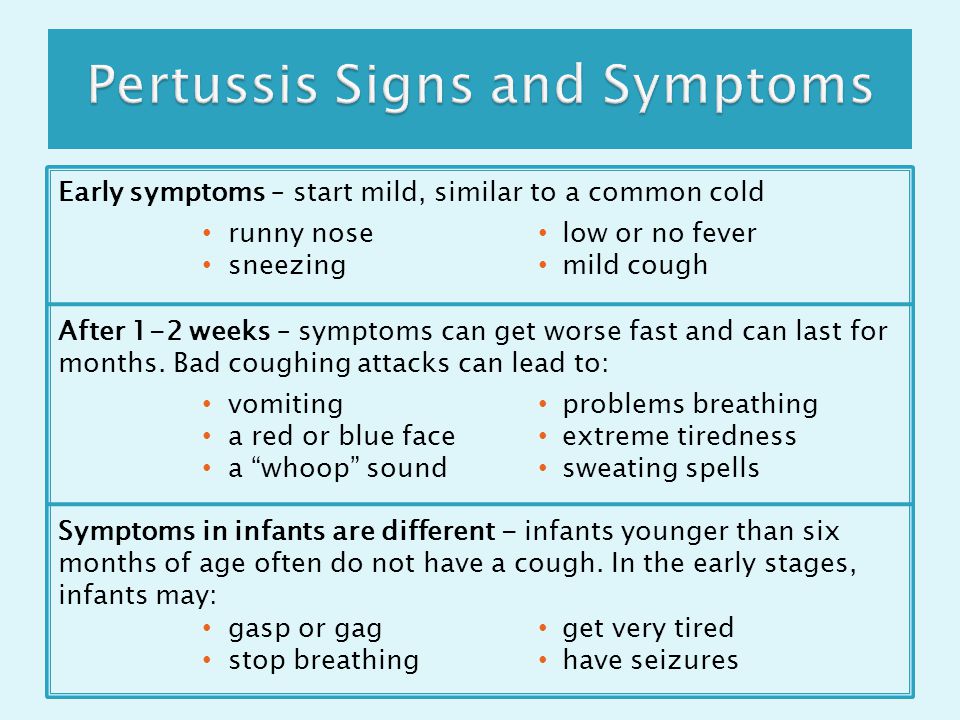How to deduct child support from payroll
Withholding Child Support Payments From Paychecks
In this article
- How Does Wage Garnishment Work?
- What If the Parent Does Not Want Wage Garnishment?
- Wage Garnishment Limitations
- Seizing Property
- Other Garnishment Orders
If you find it difficult to get the child support payments you need from the other parent, you might consider having the other parent's employer deduct the payments from their paycheck through wage garnishment, also called automatic wage withholding. Taking this step can ensure that you and your child receive the consistent, timely full payments to which you are entitled.
How Does Wage Garnishment Work?
Federal and state law requires, in most circumstances, that a parent's child support obligation be automatically deducted from his or her paycheck through a garnishment or income withholding order.
In most cases, you can have your child support payments automatically deducted from the other parent's paycheck. A court can issue the garnishment or income withholding order to pay child support.
Usually, a child support agency can also issue an order to deduct support payments from the noncustodial parent's paycheck. If you know where they work, you can ask the court or child support agency to send a wage garnishment order to the employer to withhold child support payments from their paycheck.
What If the Parent Does Not Want Wage Garnishment?
The employer is legally obligated to follow the garnishment order for child support. Even if the garnishment order is from another state, under federal law, the employer is required to follow the order. The employer can be held liable for the child support payments, damages, and fines if they do not properly deduct and send in the payments according to the garnishment order.
However, the other parent can schedule a court hearing to dispute the wage order. You can object in situations such as the amount you owe is incorrect, you won't have enough to live on, or if you had custody of the child during the time the support amount took place.
Wage Garnishment Limitations
There are some limitations to the amount of money you can garnish from the parent's paycheck. Under federal law, up to 50% of a parent's disposable income can be garnished for child support and up to 60% if you are only supporting one child.
For example, if a parent is only working 20 hours per week at minimum wage, and is ordered to pay $150.00 per week in child support, the employer cannot legally deduct your entire child support payment. In this situation, a garnishment order would not be completely effective.
Also, in some cases, you can't deduct a parent's child support obligation from their paycheck. For example, if the other parent is self-employed, they can get a court order preventing the child support payments from being deducted.
Seizing Property
If the other parent does not have wages to garnish or not enough wages to garnish, the custodial parent may be able to seize other types of property for payment. Some examples include:
Some examples include:
- Cars
- Boats
- Houses
- Rents payable
- Motorcycles
Other Garnishment Orders
Finally, it is important to know that a child support order takes precedence over other garnishment orders. If a parent has been sued for an unpaid credit card bill, and the credit card company wants to garnish the parent's wages for the money owed, their garnishment order will come second in line to your child support order. In other words, your child support will be paid first, before any other garnishment orders.
Child Support Withholding | Employer Responsibilities
Only 44% of custodial parents receive the full amount of child support. And when a parent doesn’t voluntarily meet their child support obligations, employers might be involved in the child support process.
According to the U.S. Department of Health & Human Services, 75% of child support payments are collected through child support withholding.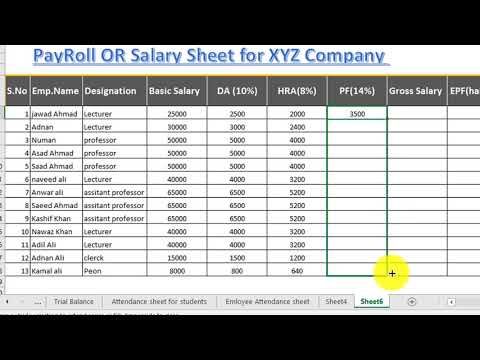 As an employer, you may have to withhold child support from an employee’s wages at some point.
As an employer, you may have to withhold child support from an employee’s wages at some point.
What is child support withholding?
Child support withholding is a court-mandated payroll deduction. You will receive a withholding notice if you are required to make child support deductions from an employee’s wages. Typically, an employee’s disposable income is used to determine the limits of child support deductions.
If a noncustodial parent has an unpaid child support debt and is your employee, a court or child support agency will send you an Income Withholding for Support (IWO) order.
You cannot terminate an employee because of child support withholding. The Consumer Credit Protection Act (CCPA) protects employees whose wages are subject to garnishments for one debt. However, the CCPA does not protect employees with two or more garnishment orders.
The Income Withholding for Support (IWO) form tells you which employee to withhold wages from, how much to withhold, and how to send payments to the appropriate state disbursement unit (SDU).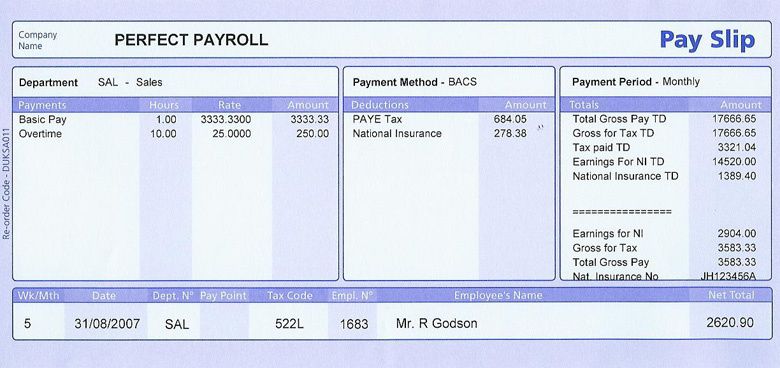
Verify that the IWO has the correct expiration date, is unaltered, has all the necessary information, and lists withholding amounts as dollars. If you have any doubts about the IWO, contact the sender.
Once you receive an IWO, you should withhold child support as soon as possible. Most states require that you start withholding no later than the pay period beginning 14 days after the agency mailed the IWO.
You will face penalties if you don’t withhold child support after receiving an income withholding order. You might be liable for the amount of the child support plus penalties and fines.
Do not stop withholding child support if your employee asks you to. If the employee disagrees with the child support withholding notice, they must contact the court or agency that issued the IWO.
Most states allow you to charge the employee an administrative fee for withholding child support. However, you cannot charge more than your state’s limit. Withhold the administrative fee from the employee’s wages, not from their child support payment.
How to deduct child support from payroll
You must withhold child support payments each pay period. But, a child support deduction from paycheck isn’t the only thing you withhold.
Employee wages are subject to mandatory deductions. You must withhold federal, state, and local income taxes; Social Security and Medicare taxes; state unemployment tax, if applicable; and any other deductions determined by state law.
Is child support a pre-tax deduction? No, child support is not a pre-tax deduction. You must withhold child support after you withhold taxes.
Because most child support orders are based on disposable net income, you need to know how to calculate the employee’s disposable income. Disposable personal income is what is left after you subtract mandatory deductions from the employee’s gross pay.
Disposable Income = Gross Pay – Mandatory Deductions
Keep in mind that disposable income is different than net pay, which is the employee’s take-home pay.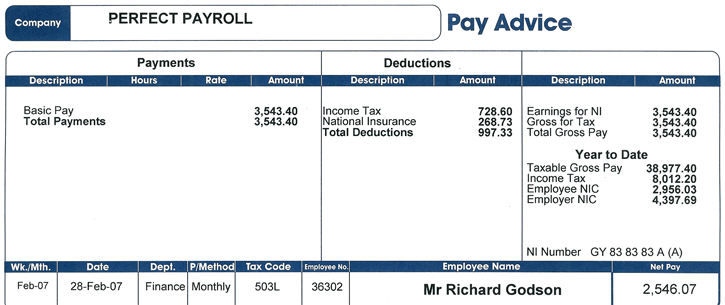 Net pay might include other deductions, such as retirement plan contributions and health insurance premiums.
Net pay might include other deductions, such as retirement plan contributions and health insurance premiums.
Before you can deduct child support from the employee’s disposable income, you need to understand CCPA rules.
Make deductions easy with Patriot’s payroll software.
From accurate calculations to unlimited payroll runs, it’s time to see what Patriot’s award-winning software can do for your business.
Learn More About Patriot Payroll
CCPA limits: Child support
You can only deduct up to a certain amount of an employee’s disposable income for child support withholding. The CCPA sets limits to prevent too much from being withheld from an employee’s disposable income.
The amount you can withhold from an employee’s wages for child support withholding is known as allowable disposable income.
You can find the employee’s allowable disposable income once you know how much their disposable income is and which CCPA limit to use.
The federal CCPA limits are:
- 50%: Employee supports another spouse or child
- 55%: Employee supports another spouse or child, and payments are more than 12 weeks late
- 60%: Employee does not support another spouse or child
- 65%: Employee does not support another spouse or child, and payments are more than 12 weeks late
Some states have lower withholding limits than the CCPA.
To find out how much you can withhold for child support, use the following formula:
Allowable Disposable Income = Disposable Income X CCPA Limit
Only withhold up to the CCPA or state limit if the ordered payment amount on the IWO is more than the employee’s allowable disposable income.
If the allowable disposable income is less than what the IWO orders, the remainder is added to the employee’s child support arrearages, which are handled by the child support withholding agency. An arrearage is an overdue amount that the employee still owes.
Child support employer withholding example
Let’s say you received an IWO for your employee, Tom. You pay Tom weekly. Tom’s gross wages are $500, and he has mandatory deductions that total $125. The IWO tells you to withhold $190 per week and use 50% as the CCPA limit.
First, find Tom’s disposable income:
Disposable Income = $500 – $125
Disposable Income = $375
Now that you know Tom’s disposable income, find his allowable disposable income.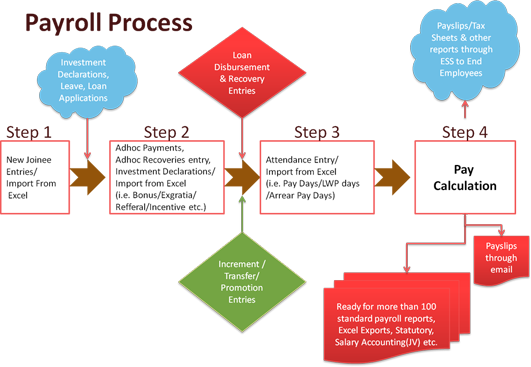
Allowable Disposable Income = $375 X 50% = $187.50
The ordered withholding amount of $190 is more than the allowable disposable income ($187.50). You should withhold and remit the allowable disposable income of $187.50. The $2.50 that remains each week becomes an arrearage.
Remitting child support payments
Remit withheld child support via check or electronic payment to the proper state disbursement unit after each payroll. Generally, you have seven business days to send the payment after paying your employee their wages, but some states have a shorter due date. Once you remit payments, the state will send the garnished wages to the custodial parent.
Continue withholding and remitting child support deductions until you receive an order telling you to stop.
If the employee leaves your business, you must notify the child support enforcement agency. Report terminated employees promptly, or according to your state’s due date. And, you may need to maintain IWOs for terminated employees in your records, depending on your state.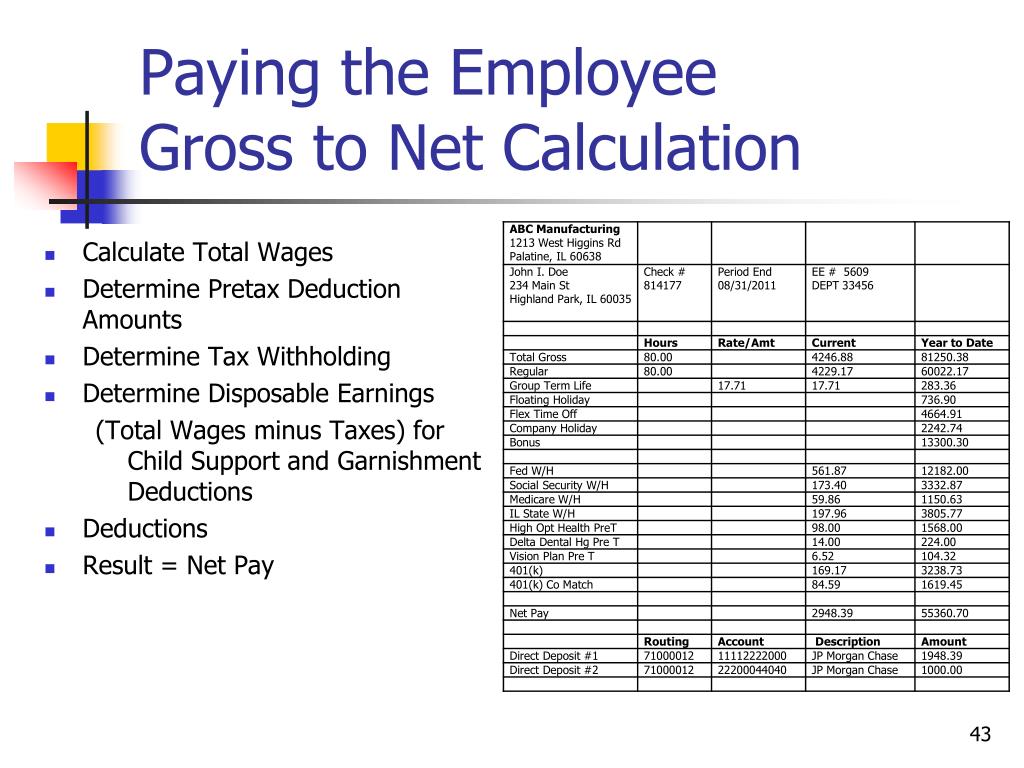
What to do if you receive multiple garnishment orders
Child support isn’t the only type of garnishment you are required to withhold. Courts can issue garnishments for other unpaid debts, such as defaulted student loans, unpaid taxes, or outstanding medical bills.
If you receive multiple garnishment notices for one employee, what do you do?
Unless the employee has an existing federal tax lien, child support withholdings take precedence over all other garnishments. But if the employee has a federal tax lien that limits the amount you can withhold in child support, tell the child support agency.
How to handle multiple child support withholdings
If you withhold child support for more than one employee, you might be able to remit one check or electronic payment per pay period to cover all child support withholdings.
You can combine child support withholdings if the payments go to the same state disbursement unit. And, you must list and date each employee’s contribution and include an identifier.
If one employee has multiple IWOs and not enough allowable disposable income to cover them all, you must withhold some money for each order. Depending on your state, you will either withhold a percentage of each order or divide the total amount of each order equally.
What happens if you receive an IWO from a different state?
Each state sets their own laws on child support withholding. Withholding can get tricky if you receive an IWO from a different state than where the employee works. Which state laws do you follow?
If you receive an IWO from a different state, you must consider the child support laws of each state.
For more information on child support withholding, visit the U.S. Office of Child Support Enforcement or contact your state.
Calculating deductions, like child support withholding, can be complicated. Let Patriot’s payroll software calculate deductions for you. Simply enter the deduction information once, and we’ll do the calculations for each paycheck.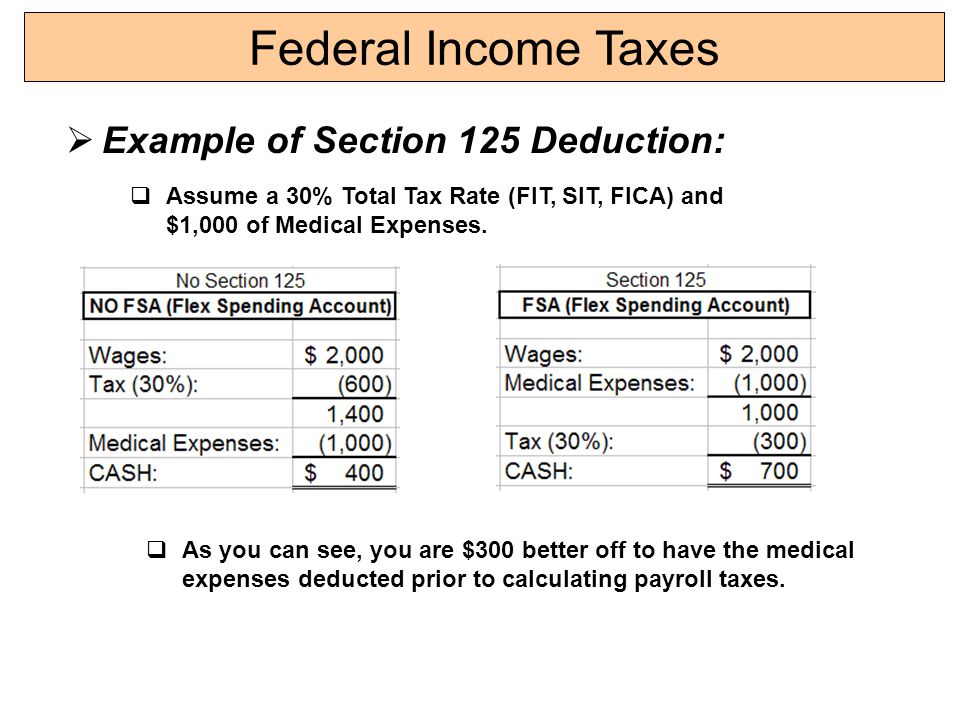 We guarantee accuracy! Try it for free!
We guarantee accuracy! Try it for free!
This article has been updated from its original publication date of 08/31/2016.
This is not intended as legal advice; for more information, please click here.
Is it possible to withhold alimony from the salary for the first half of the month (from the advance)? Otherwise, the salary at the end of the month is not enough to pay alimony.
- February 6, 2019
Opportunities: according to an expert of the Ministry of Labor, alimony can be deducted from the advance if it is known that the second part of the salary paid at the end of the month will not be enough for deductions.
Alimony is withheld from wages, vacation pay, financial assistance, severance pay and other employee income (List approved by Government Decree N 841). The total amount of deductions, taking into account alimony, cannot exceed 70% of the employee's income (Article 138 of the Labor Code of the Russian Federation, Parts 1, 3, Article 99 of the Federal Law of 02.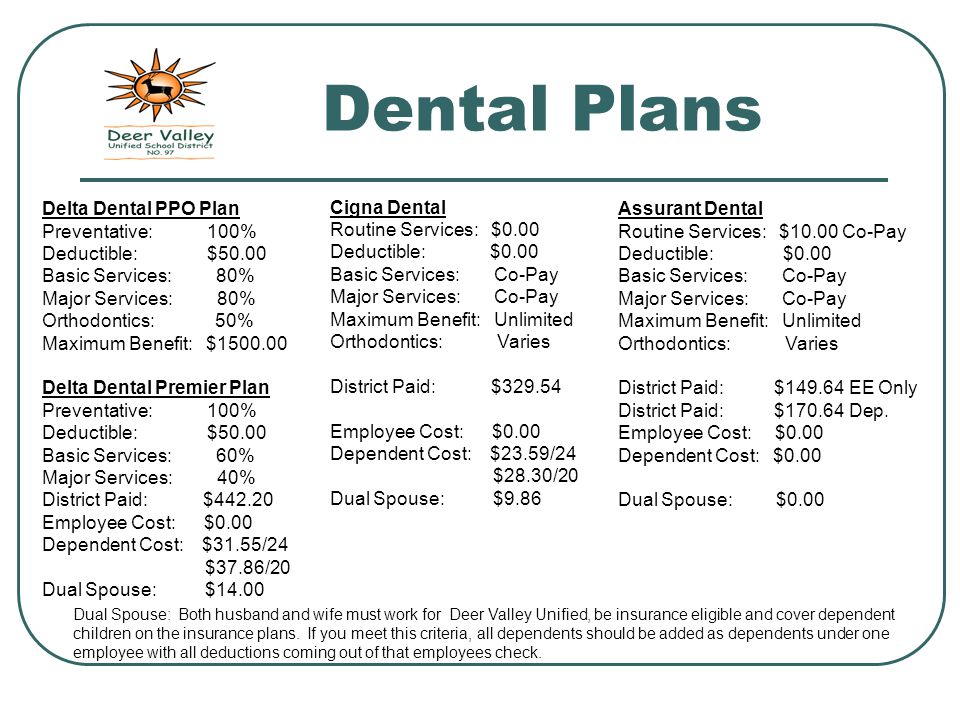 10.2007 N 229-FZ).
10.2007 N 229-FZ).
The organization is obliged to withhold alimony monthly from the employee's income and, no later than three days from the date of payment of wages or other income, transfer the alimony to the recipient. This procedure is provided for in Art. 109 RF IC. In this case, alimony is considered from income already reduced by personal income tax.
Therefore, it is possible to find out the amount from which alimony must be collected only after personal income tax is deducted from the salary. From advances, personal income tax is not calculated and is not withheld. This is confirmed by the Ministry of Finance (Letter dated 12.09..2017 N 03-04-06/58501). In this connection, as a rule, deduction and payment of alimony is made once a month after deduction of taxes.
But at the same time, a situation may arise when the amount of salary paid at the end of the month (taking into account the previously issued advance payment) may not be enough to withhold alimony.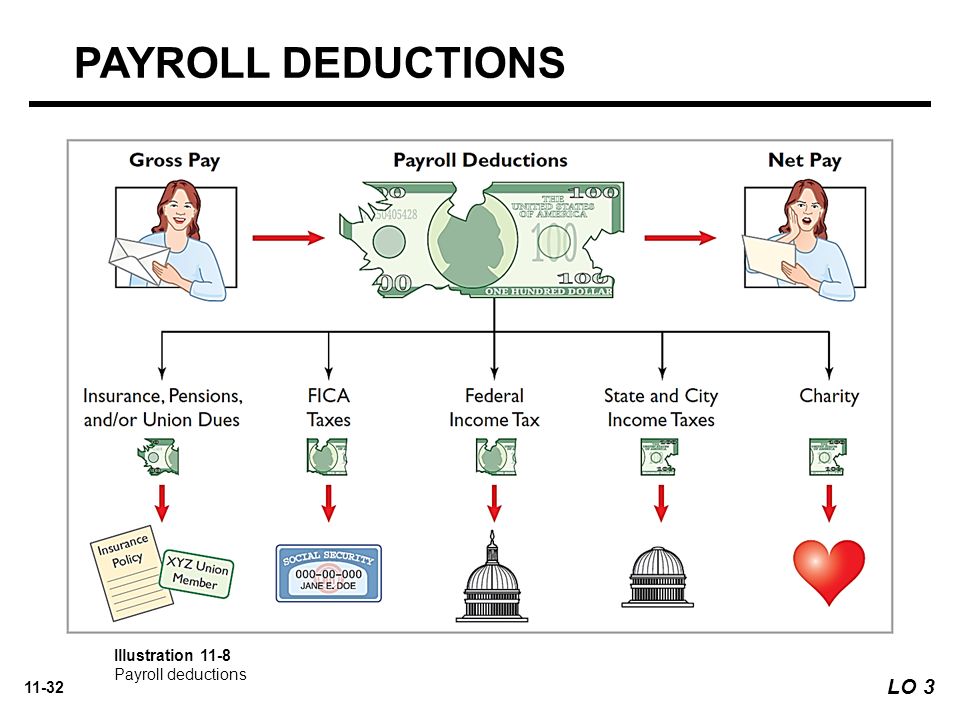
The representative of the Ministry of Labor believes that if it is known that wages are not enough for deductions, then the payment of alimony can also be made from an advance payment. nine0010
Some courts believe that alimony must be withheld from both the advance payment and the salary (see, for example, the Decree of the Federal Antimonopoly Service of the West Siberian District of 09/06/2011 in case N A75-1884 / 2011).
Note: A parent who pays alimony for their minor children is entitled to a child income tax deduction. One of the conditions for receiving a standard deduction for children is the fact that the child is supported by the parents or the spouse (wife) of the parent (subclause 4, clause 1, article 218 of the Tax Code of the Russian Federation). The payment of alimony just confirms the fulfillment of this condition. Specialists of the Ministry of Finance of Russia agree with this position (see, for example, Letters No. 03-04-05/46762 dated 10. 08.2016, No.2).
08.2016, No.2).
Links to documents are available only to users of ConsultantPlus - clients of the company "ELKOD". You can get additional information on the acquisition of SPS ConsultantPlus HERE. nine0010
Can an employer withhold alimony only on the basis of an employee's application (in the absence of a writ of execution)? If this is possible, what documents, including applications, should the employee submit in this case?
The employer is not entitled to withhold child support only on the basis of the employee's application.
Related material
What you need to know about payroll deductions
No. 01 / 2016
01 / 2016
For information about the procedure for deductions at the initiative of the employee, employer and mandatory deductions made by virtue of law, read the article "What you need to know about deductions from wages"
In accordance with art. 137 of the Labor Code of the Russian Federation, deductions from an employee's salary can be made only in cases provided for by the Labor Code of the Russian Federation and other federal laws.
Article 109 of the Family Code of the Russian Federation (hereinafter referred to as the RF FC) provides that the administration of the organization at the place of work of a person obliged to pay alimony on the basis of a notarized agreement on the payment of alimony or on the basis of a writ of execution is obliged to withhold alimony monthly from wages and (or ) other income of the person obliged to pay alimony, and pay or transfer them at the expense of the person obliged to pay alimony to the person receiving alimony, no later than three days from the date of payment of wages and (or) other income to the person obliged to pay alimony. nine0010
nine0010
As you can see, by virtue of Art. 137 of the Labor Code of the Russian Federation and Art. 109 of the RF IC, the employer is obliged to withhold alimony on the basis of a notarized agreement on the payment of alimony or on the basis of a writ of execution.
Let's note that some experts consider any deductions from wages possible at the request of the employee. They argue that labor legislation does not contain restrictions on this. It is also noted that such relations are of a civil law nature and are not labor, therefore Art. 137 and 138 of the Labor Code of the Russian Federation do not apply to them. nine0010
In our opinion, supporters of this point of view lose sight of the fact that wages from which deductions are made is an element of precisely labor relations, and within the framework of these relations, the legislator has taken measures to protect wages from various deductions.
Article 137 of the Labor Code of the Russian Federation prohibits any deductions from an employee’s salary that are not provided for by the Labor Code of the Russian Federation or other federal law (see the decisions of the Tambov Regional Court dated October 19, 2016 in case No.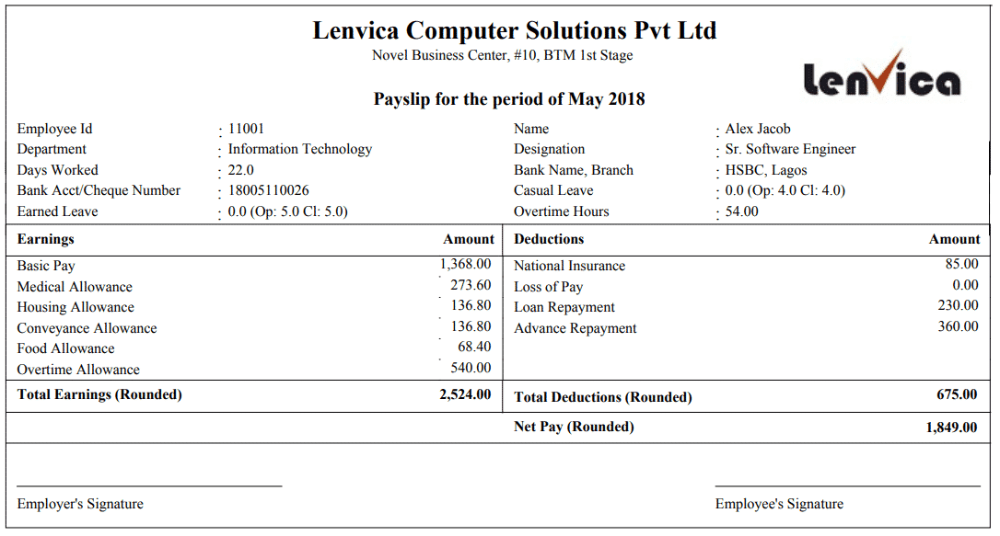 7-423 / 2016 and the Volgograd Regional Court dated January 20, 2016 in case No. 07-48/2016, ruling of the Moscow City Court dated September 12.2016 No. 4g-10226/16).
7-423 / 2016 and the Volgograd Regional Court dated January 20, 2016 in case No. 07-48/2016, ruling of the Moscow City Court dated September 12.2016 No. 4g-10226/16).
Therefore, we believe that the employee's application alone does not allow for a deduction. It can be the basis for deductions only when such a procedure is established by a specific norm of federal law. In cases where the possibility of deductions from wages in favor of third parties or in favor of the employer itself is not provided for by any law, the employee's application for such deduction should not entail any consequences.
Thus, in our opinion, the employer is not entitled to withhold child support only on the basis of the employee's application, since the law does not provide for such a possibility.
An employee, having received a salary, can dispose of the money at his own discretion, in particular, transfer part of the salary as a voluntary payment of alimony. The employer, in such a situation, can only help and transfer the money paid by the employee to the cash desk or to a bank account in favor of the third party indicated in the application.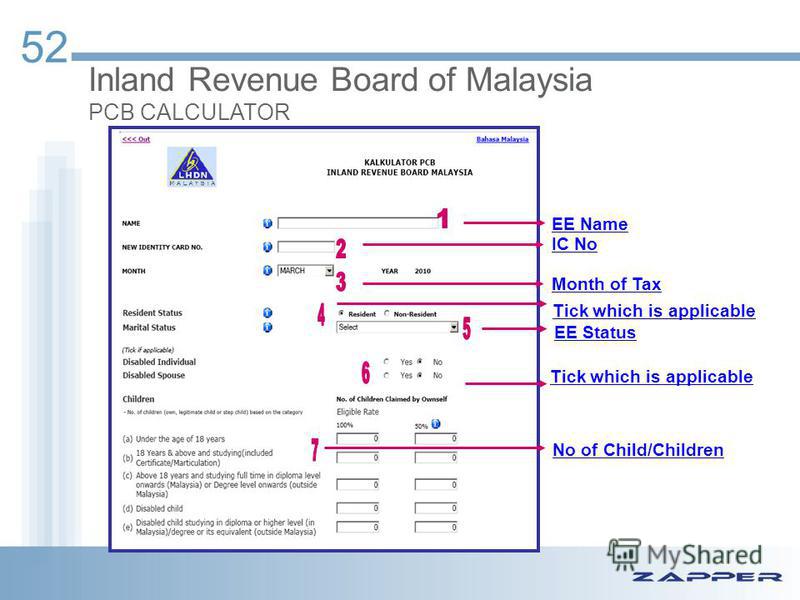 nine0010
nine0010
For information
It is not necessary to talk about the existence of an established official position on the issue of the possibility of deduction from the employee's salary at the request of the employee.
In the letter of Rostrud dated July 18, 2012 No. PG / 5089-6-1, it is noted that no other additional deductions from wages by the decision of the employer, in addition to those provided for in Art. 137 of the Labor Code of the Russian Federation are not allowed, except in cases where other federal laws impose on the employer the obligation to make deductions from the wages of employees. Therefore, at the request of the employee, the employer is not entitled to deduct amounts from his salary to repay a bank loan. And already in a letter dated 26.09.2012 No. PG / 7156-6-1 Rostrud expressed the opinion that such a situation (repayment of a loan without receiving funds to an account or on hand) is legitimate, since it is not about retention, but about the will of the employee to dispose of the accrued wages, and that the provisions of Art.



